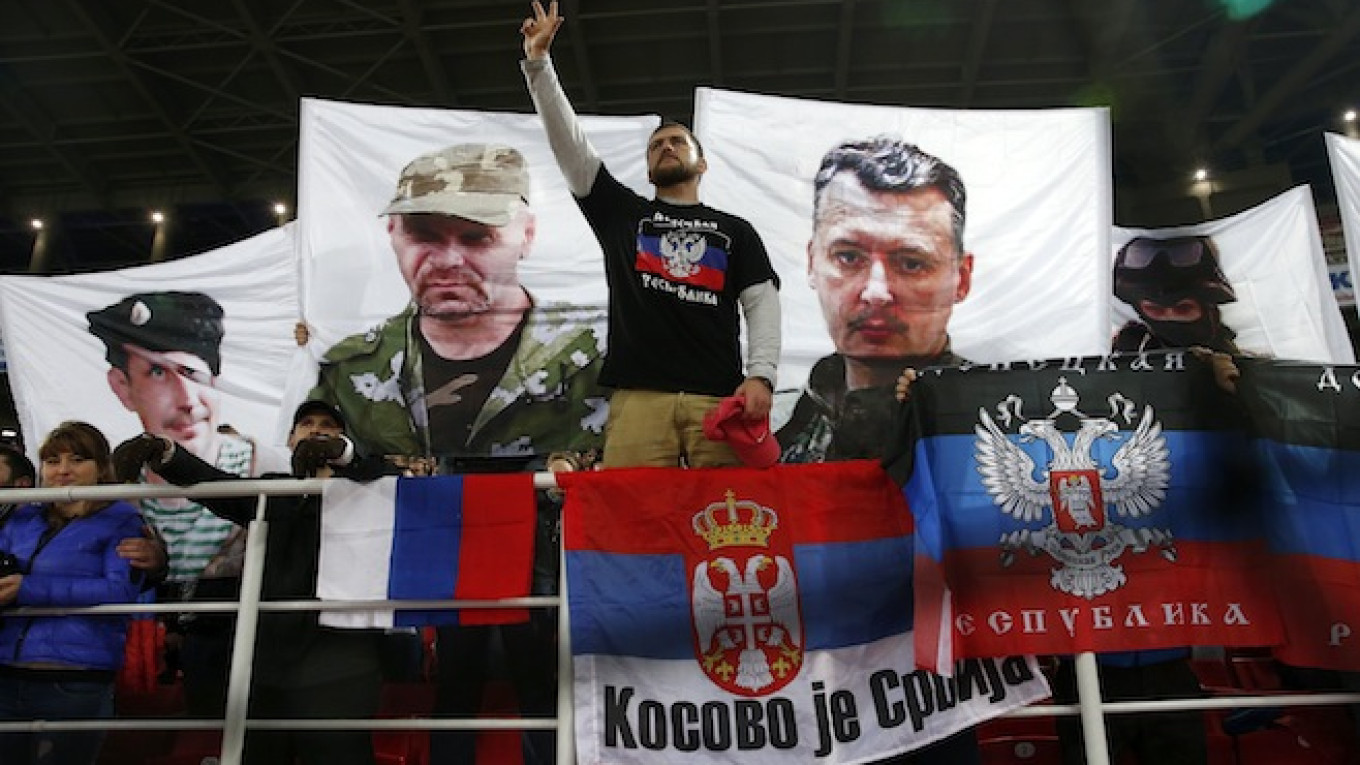The number of Russians who negatively view their country's relations with Europe and the U.S. has soared to an all-time high, reaching a vast majority of the population, a recent poll has shown.
Eighty-two percent of those questioned by independent pollster Levada Center said they viewed relations with the U.S. as tense or hostile, while 66 percent said the same of Russia's relations with the EU. Those numbers are by far the highest since Levada pollsters began asking that question more than a decade ago, according to the report released Tuesday.
Of those questioned, 39 percent said they saw Russia's relations with the U.S. as specifically hostile compared to 4 percent at the start of the year. That number had stayed in the low single digits throughout the previous decade, the report said.
Meanwhile, the number of those who saw Russia's relations with the European Union as hostile has spiked to 16 percent from a negligible 1 percent at the start of the year.
Russia's state-run television channels have been flooded with anti-Western rhetoric since the start of the Ukraine crisis, which has led to a deepening dispute between Moscow and the West. Russians who have spoken out against their government's policy on Ukraine — such as Soviet rocker Andrei Makarevich — have increasingly been labeled as "traitors," and denounced as unpatriotic.
The government's widely broadcast assurances that Russia had demonstrated its power and commanded respect by annexing Crimea from Ukraine, and that the West is set on bringing Russia down also seem to have gained traction.
The number of Russians who believe that their country has shared interests with the West in issues such as fighting international terrorism, solving economic problems or developing cultural or scientific ties has dropped to 8 percent from 44 percent four years earlier, Levada Center said in the report. No figures for the interim period were provided.
Meanwhile, the number of those who believe that Western nations are Russia's adversaries that "strive to solve their problems at its [Russia's] expense and damage its interests every time they get a chance" has increased to 79 percent from 44 percent over the same period.
Nearly all of the poll's respondents agreed that Russia was becoming increasingly isolated from the West, with only 1 percent denying any isolation and another 3 percent saying they were unsure, the report said. The isolation was seen as grounds for some degree of concern by 36 percent of respondents, while another 59 percent said they were not worried.
Nearly one in four Russians, or 24 percent, said they saw no need for their country to improve relations with the U.S. and other Western nations, though a total of 66 percent considered improving relations to some degree necessary, the Levada Center said.
The poll was conducted on Sept. 26-29 among 1,630 people from 46 of Russia's regions. It gave a margin or error of 3.4 percentage points.


